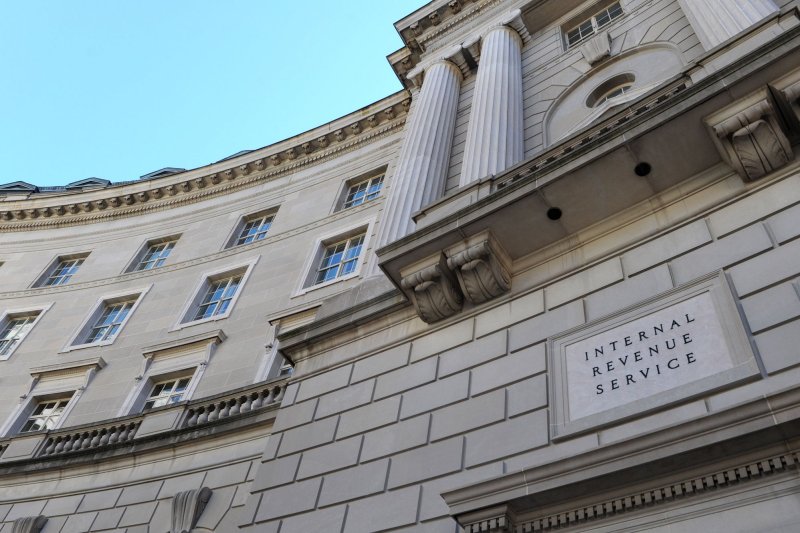Under the law to take effect in 2021, debt collectors hired by the IRS can no longer target low-income Americans and those who receive Social Security benefits. File Photo by Kevin Dietsch/UPI |
License Photo
Jan. 30 (UPI) -- A group of Democratic lawmakers asked the Internal Revenue Service Wednesday to see its plans for instituting a new federal law that bars private debt collectors from targeting low-income Americans and those who receive Social Security benefits.
The group -- including Sens. Elizabeth Warren of Massachusetts, Sherrod Brown of Ohio and Ben Cardin of Maryland, and Rep. Jimmy Garcia of California -- sent a letter to the IRS asking for information about the strategy for the Taxpayer First Act and what progress has been made to comply with the law.
The law, passed last year and set to take effect in 2021, bars private debt collectors working for the IRS from seeking overdue taxes from fiscally disadvantaged Americans.
The IRS assigns private tax collection agencies to collect on overdue tax accounts after sending two notifications informing them the action is being taken. Under the new law, the agency can no longer refer its accounts to such private collectors if a taxpayer's adjusted gross income is less than 200 percent of the federal poverty level. Taxpayers who receive the bulk of their income from Social Security or supplemental programs are also shielded by the law.
The Democratic lawmakers asked the IRS how it plans to determine a taxpayer's income and ensure other qualifying Americans are excluded. Another stated concern is how the agency plans to hold private debt collectors accountable if they violate the new law.
"The IRS previously refused to pre-emptively exclude [Social Security Disability Insurance] from having their debt assigned to private debt collectors," the four-page letter states. "The IRS also rescinded a directive from the National Taxpayer Advocate to exclude taxpayers with incomes below 250 percent of the federal poverty level.
"We are concerned the IRS will continue to use [its] flawed approach to identify taxpayers experiencing economic hardship."
The lawmakers asked the IRS to answer several questions, including how the agency determines income and how it intends to halt prior collections against taxpayers who will be exempt in 2021.
Earlier this month, Brown and Warren, a Democratic candidate for president, sent a letter to IRS Commissioner Charles Rettig expressing concern about the agency's decision last fall to allow collectors direct access to taxpayers' bank accounts.















